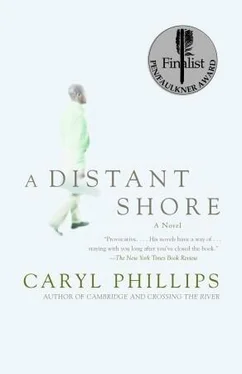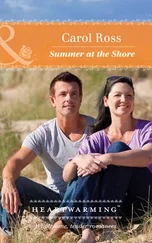The police haven’t a clue. They told me that there isn’t necessarily anything suspect, although they detected some evidence of bruising to the head. The truth is I’m not sure how hard they’re trying. I mean, there’s no yellow police tape, or signs asking for witnesses. It’s only two days ago that a man was drowned in this village, but everything is just going on as normal. I stop and peer over a hedgerow where a white-ankled horse stares back at me with that vacant quizzical look that they sometimes have. And your problem is? My problem is that my friend was found face down in this canal and nobody seems to care. I turn from the hedgerow, and the field’s curious occupant, and begin now to walk back in the direction of the village. Face down in a canal because he said something to somebody? I just don’t know. When I reach The Waterman’s Arms I turn from the towpath and cross the sodden garden, dodging the discarded children’s toys, until I come to the six stone steps that lead up to the public bar.
Inside the pub it’s quiet. A few people have already settled in for a lunchtime pint, and they barely look up as I enter. As I walk to the bar the landlord surprises me by reaching for a half-pint glass. “Half of Guinness, isn’t it?” I smile and ease myself up and onto a stool. The landlord focuses on the drink, as people tend to when they’re pouring a Guinness, and then he looks up at me.
“Friend of yours, wasn’t he?” The landlord hands me the Guinness and I remember to answer the question.
“Yes,” I say. “He was a friend of mine.”
“It’s a sad business, isn’t it? I’m sorry for him and I’m sorry for what it’s doing to our village.”
I take the Guinness and wonder if I should leave this stool and go to the other side of the pub, but it’s too late. It would look as though I was running away from something, which would, of course, be the truth.
“What it’s doing to the village?”
“Well, it makes us look bad, doesn’t it?”
“I still don’t understand,” I say. This time I take a drink and stare directly at him.
“Well, it must have been an accident because there’s nobody in Weston who would do anything like that.”
“I see.”
He looks over my shoulder at the other men in the pub. Now I understand. This is not a private conversation.
“If you’ve lived here as long as I have, love, and you’ve grown up with folks like these, you’d understand that there’s not one among them capable of harming anybody. That’s just how they are. Decent folk committed to their families and their community. We don’t have murderers here. A few villains, some with light fingers, and a few who are quick with their fists, but that’s about it. Nothing more than this.”
I nod, for I have no desire to upset his sense of community. I’m not sure that I want the rest of the Guinness, but to leave at this point would be to admit defeat, and out of respect for my friend I won’t be doing that. Not with these people. And then the landlord suddenly reaches beneath the bar as though remembering something. He rips open a packet of crisps and offers the bag to me, but I shake my head.
“No, thanks.”
He withdraws the bag, and then thrusts his hand in and pulls out a half-dozen crisps at once. “I can’t help it,” he says, “I’m addicted to the beggars, but only Bovril and maybe prawn. The others I can let go, but I’m addicted to Bovril.”
I watch this unselfconscious man and understand that until the bag is empty our conversation will remain on hold, which suits me fine.
I lock, and then bolt, the door behind me. The clock reminds me that it is only one in the afternoon, and I look around and realise that I’ve simply replaced the gloom of the pub with the gloom of my own house. It’s early autumn, but it looks and feels like winter. The Guinness seems to have gone straight to my head, and not even the walk up the hill in the fresh air has sorted me out. I slump down into the chair nearest the fireplace and close my eyes. It was only yesterday afternoon that I came back from the seaside and went directly to the hospital. When the bus passed through the village I stayed put. The doctor had previously told me that I must come in straight away if I ever didn’t feel right, and so I did as I was told. I had spent just the one night away, but I was in some discomfort and I could barely think. However, when I got to the hospital Dr. Williams took a quick look at me, and then he stared at my suitcase. He asked me to sit and then he began to quiz me about where I’d been, and so I told him that I’d just been to see my sister. I knew this would upset him, and I was right. “Dorothy,” he said, “your sister is dead. She died earlier this year in London. You know you haven’t been to see your sister, so where have you been?” I said nothing, for we’d already been through this enough times. He put on that caring face of his. “Dorothy, you’re going to have to learn to live without Sheila. I know it’s difficult for you, but if you can’t let go then we’ll have no choice but to get you some help.” Again I said nothing and I just waited until he’d run out of things to say. Eventually he got fed up of me, and then I dashed to the bus stop for it looked like it might start to rain. I was standing on the bus going home when I felt it in my blood that something was wrong. It wasn’t just the sight of burly, unemployed men sitting in the seats reserved for the handicapped and the elderly that was disturbing me, there was something else. I stared out of the window at the town’s terraced houses, great stripes of them arranged in narrow, ramrod-straight streets which, as we made our way into the countryside, finally gave way to a desolate landscape of empty fields over which the sun now hung ominously low.
I got home and had barely set down my suitcase before I heard the knock on the door. Standing there in the dark was a policeman and a policewoman, both in uniform, so there was no need for them to introduce themselves. I felt my stomach lurch. They asked me if I was Miss Dorothy Jones, and when I said “yes,” they asked me if they might come in for a minute. I stepped to one side and tried to work out just what they were doing round at my place. I mean, why would the police come banging on my door? They wiped their feet on the mat, took off their hats and I ushered them into the living room. However, even before they said anything it suddenly dawned on me who it was they had come to talk to me about. The woman spoke up.
“It’s about Solomon Bartholomew.”
“Yes,” I said. “Please take a seat.” They looked around and then, hats in hand, they backed gently into the sofa. I was going to offer them a cup of tea, but this seemed ridiculous. I wanted to hear what they had to say. The man spoke now.
“So you know Solomon Bartholomew?”
“Yes, he drives me to the hospital. He’s a very nice chap, who lives just there.” I pointed. “The green car is his.”
Now it was the turn of the policewoman.
“And when was the last time that you saw Mr. Bartholomew?”
“Just before I went away. I’ve been at the coast for the past day. Well, one night and two days. In fact, I’ve only just come back. Is something the matter?”
Again the woman spoke. “And you’re returning directly from there, are you?”
“Well, no. I stopped in town at the hospital.”
“But what I mean is you’ve not been here, in the village, for the past two days?”
“I’ve just told you, I’ve only just got back.”
The policewoman looked at the man, as though giving him the cue to assume his seniority.
“I’m sorry to have to tell you, but Mr. Bartholomew has been found dead. He was found drowned, face down in the canal.”
Читать дальше











![Карен Кингсбери - A Distant Shore [calibre]](/books/384306/karen-kingsberi-a-distant-shore-calibre-thumb.webp)
